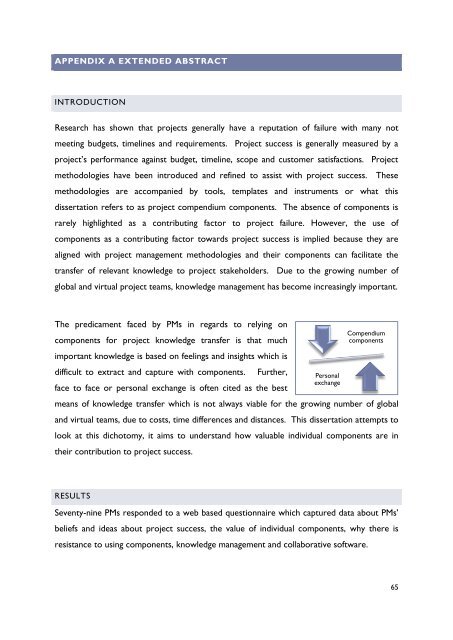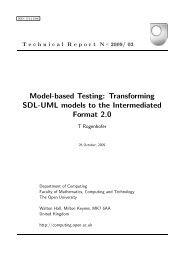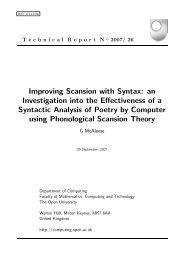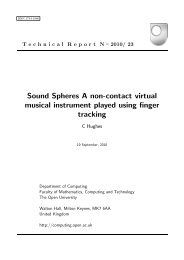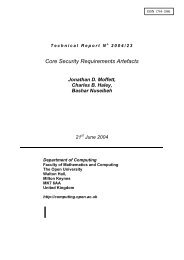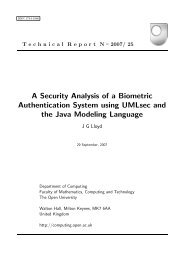Assembling The Project Compendium - Computing Technical ...
Assembling The Project Compendium - Computing Technical ...
Assembling The Project Compendium - Computing Technical ...
Create successful ePaper yourself
Turn your PDF publications into a flip-book with our unique Google optimized e-Paper software.
APPENDIX A EXTENDED ABSTRACT<br />
INTRODUCTION<br />
Research has shown that projects generally have a reputation of failure with many not<br />
meeting budgets, timelines and requirements. <strong>Project</strong> success is generally measured by a<br />
project‟s performance against budget, timeline, scope and customer satisfactions. <strong>Project</strong><br />
methodologies have been introduced and refined to assist with project success. <strong>The</strong>se<br />
methodologies are accompanied by tools, templates and instruments or what this<br />
dissertation refers to as project compendium components. <strong>The</strong> absence of components is<br />
rarely highlighted as a contributing factor to project failure. However, the use of<br />
components as a contributing factor towards project success is implied because they are<br />
aligned with project management methodologies and their components can facilitate the<br />
transfer of relevant knowledge to project stakeholders. Due to the growing number of<br />
global and virtual project teams, knowledge management has become increasingly important.<br />
<strong>The</strong> predicament faced by PMs in regards to relying on<br />
components for project knowledge transfer is that much<br />
important knowledge is based on feelings and insights which is<br />
difficult to extract and capture with components. Further,<br />
face to face or personal exchange is often cited as the best<br />
means of knowledge transfer which is not always viable for the growing number of global<br />
and virtual teams, due to costs, time differences and distances. This dissertation attempts to<br />
look at this dichotomy, it aims to understand how valuable individual components are in<br />
their contribution to project success.<br />
RESULTS<br />
Personal<br />
exchange<br />
<strong>Compendium</strong><br />
components<br />
Seventy-nine PMs responded to a web based questionnaire which captured data about PMs‟<br />
beliefs and ideas about project success, the value of individual components, why there is<br />
resistance to using components, knowledge management and collaborative software.<br />
65


